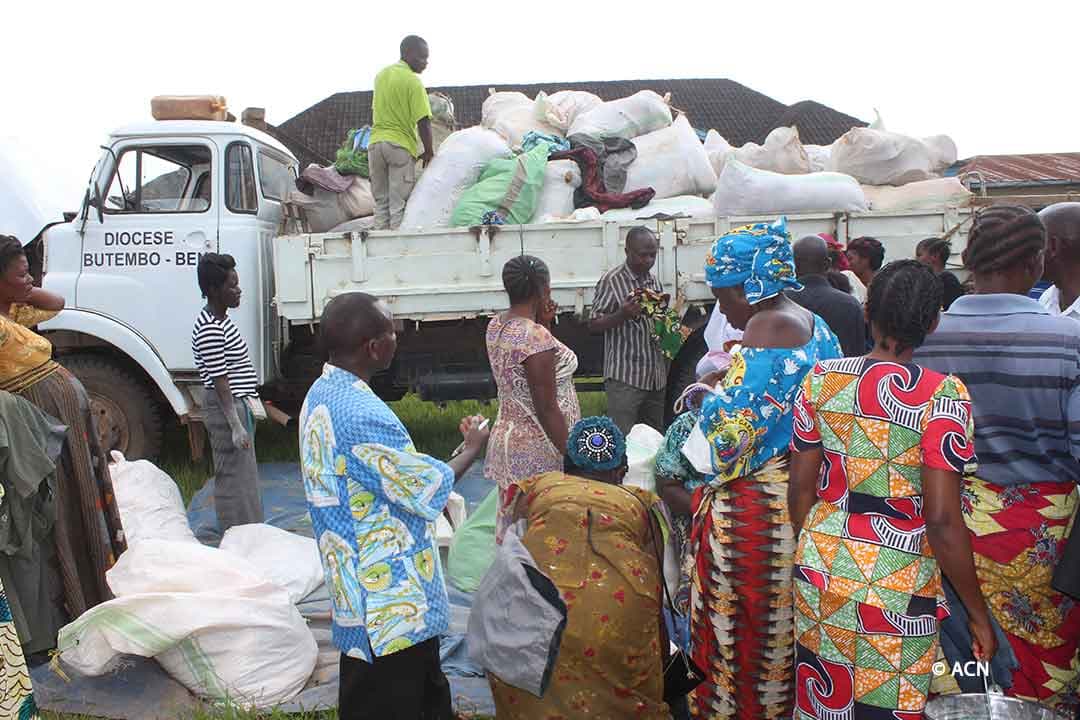YAOUNDÉ, Cameroon – A recent attack that killed at least 14 Catholics the Democratic Republic of Congo has raised fears of a new religious conflict in the east of the African country.
The killings were carried out by members of the Allied Democratic Forces – a militia affiliated to the ISIS terrorist group.
According to Vatican newspaper L’Osservatore Romano, the 14 Christians, “many of them very young” were “killed with pangas [matchetes] and kalashnikovs [rifles] in the town of Eringeti, for refusing to convert into Islam.”
In a May 25 statement, Pope Francis condemned the killings, noting that the action of the Christians [refusing to convert and opting for death instead] was “a testimony of martyrdom that a group of Catholics from Congo, from North Kivu, have given in recent days.”
This wasn’t a one-off attack, but a systematic attack on Christianity by Islamist terrorists.
On May 13, at least 11 Christians were executed in the village of Ndimbo in Ituri Province. Many others were kidnapped, and houses set on fire.
RELATED: After meeting president, Congo cardinal plays down church/state crisis
“This horrific attack has left a trail of devastation and despair, with the loss of life and destruction of property reaching catastrophic proportions,” said a survivor in an interview with International Christian Concern.
For over 30 years eastern Congo has been marred by conflict, where over 100 armed groups and foreign armies battle for the control of the region’s vast mineral deposits.
The toll is staggering, with approximately six million people killed since conflict re-escalated in 1996. Some 6.1 million others have been displaced internally, and nearly a million Congolese have gone out of the country to countries such as Angola, Burundi, the Republic of Congo, Uganda, the United Republic of Tanzania, and Zambia as refugees or asylum-seekers.
RELATED: Pope Francis condemns ‘act of blind hatred’ in Eastern Congo
International Christian Concern says the Allied Democratic Forces (ADF) – an Islamist extremist rebel group – has committed “ruthless and barbaric actions.”
The Democratic Republic of the Congo is over 95 percent Christian and under 2 percent Muslim, but the lack of government control in the East has meant Islamist terrorist groups have little resistance.
Bishop Melchisedec Sikuli Paluku of the Catholic Diocese of Butembo-Beni said the “brazen disregard for human life and dignity exhibited by these extremists underscores the urgent need for heightened security measures and robust counterterrorism efforts to safeguard innocent civilians from such brutal acts of violence.”
The bishop praised the “resilience and courage “of the villagers in the face of such adversity and noted that such courage was “a testament to their unwavering spirit and determination to rebuild their lives amidst unimaginable tragedy.”
In the month of March alone, at least 50 Christians were killed by the ADF in the DRC, according to the charity Open Doors.
“Anyone who has been kidnapped by these terrorist groups and managed to escape from them alive has told the same story. They were given the choice between death and converting to Islam,” Paluku said.
“Not a day goes by without people being killed,” the bishop said, and insisted that there was “a large-scale project […] to Islamize or expel the Indigenous populations” of the region.
In an April 2021 statement the bishops’ conference said that they see “the Islamization of the region [in the East] as a sort of deeper strategy for a long-term negative influence on the general political situation of the country.”
Paluku claims the rise of Islamist groups rose with under the influence of former Libyan strong man, Colonel Muammar Gaddafi, who “financed many mosques in our country; since then, other organizations have taken over.”
Tony Nwaezeigwe Nwankwo, the president of International Coalition against Christian Genocide in Nigeria, said what is happening in the Democratic Republic of Congo is part of an international trend in Africa.
“I think the Congo DRC case is multidimensional, the ISIS question which is shared with Uganda being just one,” he told Crux.
“But going further, the situations in Angola, Central African Republic and West Africa present one aspect of the scenario that’s linked with the Congo DRC/Uganda Islamic insurgency,” Nwankwo said.












